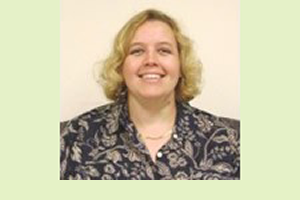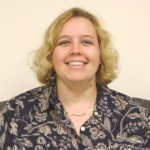 Math anxiety can be crippling, attacking people at every age and stage of life. There are the students whose confidence wilts during grade school tests who go on to pick college majors—and even careers—based on avoiding algorithms, equations, and even simple computation.
Math anxiety can be crippling, attacking people at every age and stage of life. There are the students whose confidence wilts during grade school tests who go on to pick college majors—and even careers—based on avoiding algorithms, equations, and even simple computation.
But it is also preventable, mathematician Suriza van der Sandt insists. For the past four years, she has focused both her research acumen and passion on stopping its spread. She begins at the head of the class.
“If we want children to do better in math, we need to start with their teachers. Math anxiety is one of those ills passed on to students that could negatively affect their achievement,” says van der Sandt, who focuses on elementary school teachers purveying the most fundamental math.
Teachers who are insecure about their math abilities exhibit telltale signs, she says. They allot less class time to the subject and discourage students—sometimes subtly—from seeking help. They adhere rigidly to processes and solutions described in the textbook rather than considering creative answers that deviate from the standard.
These role models can have a particularly damaging impact on girls, who still lag behind boys in the amount of math and science they study and in their pursuit of careers that rely on quantitative skills.
“One of the things scholarship on the subject shows us is that girls will exhibit the same levels of math anxiety as their elementary school teachers,” she says, adding, “I do not believe this anxiety is hard-wired. But as a society, we’re still telling girls that it’s o.k. not to be good at math and that it’s o.k. to say, ‘I don’t like math.’”
A shared goal of her colleagues in both education and mathematics is to boost teachers’ skills, knowledge and confidence so they will provide better help to their students, become more supportive of innovation, learn to demonstrate concepts, and in general, make a greater commitment to teaching math.

She has ready access to research subjects in the many TCNJ education majors who take math classes to satisfy the College’s rigorous degree requirements, and has observed insecurity up close on occasion. “Math makes me sweat” is how one freshman education major described her feelings about the subject and the upcoming expectation to teach it, she recalled.
“We have math content courses designed for elementary school teachers, and we are now collecting data measuring their impact on math anxiety,” says van der Sandt, who collaborates with Steve O’Brien, associate professor of technological studies in TCNJ’s School of Engineering, and Beth Johnson, of Wilkes University in Pennsylvania, on this research.
Declining math and science literacy and competence in the U.S. is a source of national concern, particularly as it affects American workers competing in global job markets.
TCNJ has made boosting competence in STEM subjects for both educators and practitioners a priority. Each year, 120 to 150 education majors spend time in the School of Engineering, which offers M/S/T (math, science, technology) specialization program for education majors. Van der Sandt, a South African who came to this country to study geometry education, says she chose the College in part because of this emphasis.
“I sought places where math education courses were housed in the math department. That’s not very common,” she says.
Math anxiety is not her only passion. Van der Sandt says she is also eager to explore ways to create a nimbler teaching force, alert to the needs of diverse math learners.
“It is increasingly evident that one-size-fits-all math content courses don’t necessarily work. What is needed for the average elementary school classroom may not work well for special education or deaf and hard of hearing students,” she says. “Being responsive to the needs of teachers will be key to our success, and money spent training them to be more competent and confident at math will be money well spent.”

